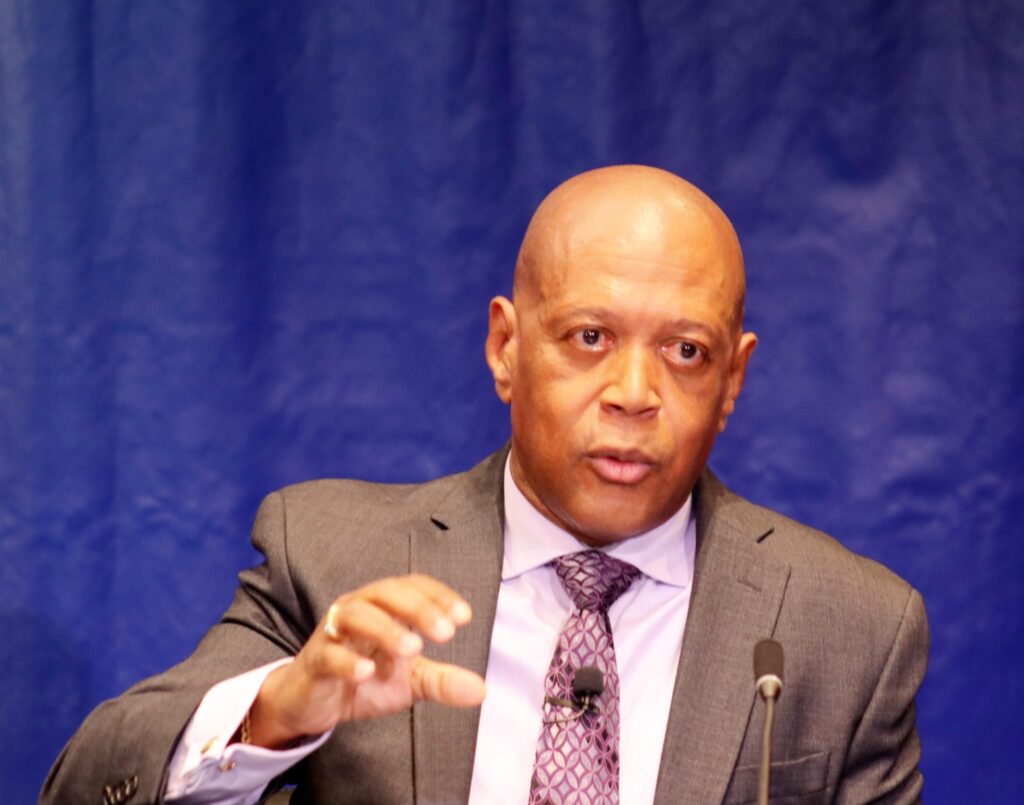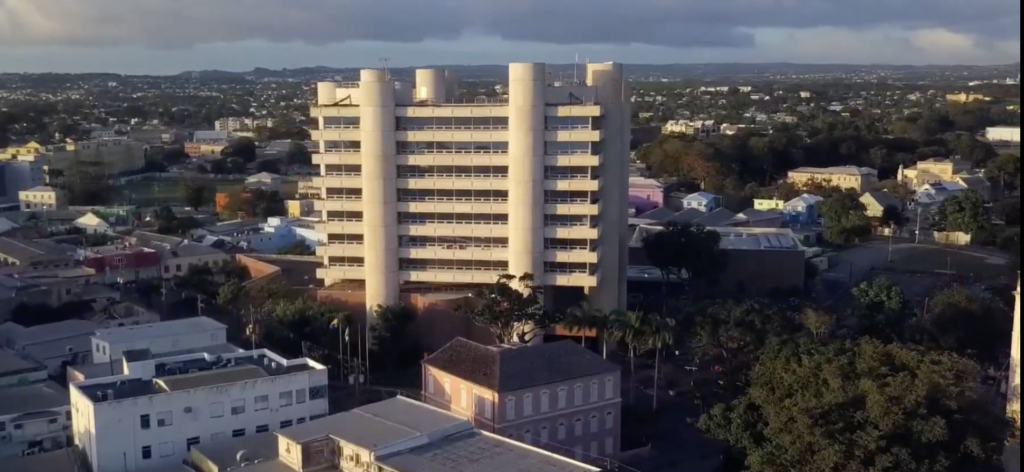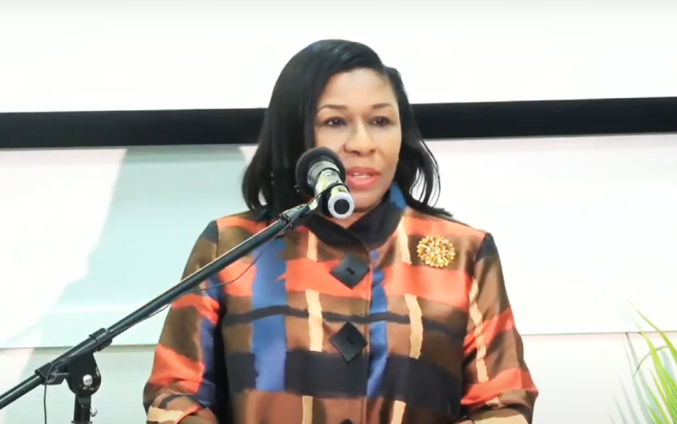![]()
Barbados has recorded its highest-ever foreign reserves of $3.2 billion for September, while achieving economic growth of 3.9 per cent in the first nine months of 2024, despite challenges from Hurricane Beryl and global economic uncertainties, the Central Bank of Barbados reported Wednesday.
However, Barbadians have been put on notice of potential increases in food prices later this year.
Delivering the bank’s report card on the performance of the economy for the first nine months of this year, Governor Dr Kevin Greenidge said the economy maintained steady growth driven by tourism, business services and construction industries.
He added: “Inflation moderated, unemployment fell, and the country’s external position remained robust, marked by the highest end-September international reserves level, equivalent to 31.2 weeks of imports of goods and services.”
“The economic outlook is positive and bright, despite growing geopolitical uncertainty,” he assured, forecasting that the economy will maintain its growth momentum through year-end, with real GDP expanding by approximately 3.8 per cent.
However, the top economist informed the country that because much of what residents consume is imported, the bank is limited in its capacity to implement any monetary ease which could cushion price increases.
He pointed to some potential food price hikes for the year ahead.
“The domestic inflation rate is expected to slow further, with the 12-month moving average stabilising between 2 and 3 per cent by year-end. This forecast assumes easing international food and energy prices from their 2022 peaks. However, global challenges—including escalating geopolitical tensions, potential oil price hikes, and disruptions related to the Red Sea crisis and Panama Canal water shortages—could increase freight costs and impact supply chains. Domestically, adverse weather could further strain agricultural output, pushing up local food prices,” the governor said.
He also reported a steady decline in the debt-to-GDP ratio, which now stands at 105.6 per cent. Greenidge said this achievement reflected Barbados’ resilience in managing external shocks while continuing to reduce its reliance on new debt.
Reporting on the drivers of economic growth for the first three quarters of 2024, Greenidge said there were significant increases in long-stay visitor arrivals.
Long-stay visitors increased by 12.9 per cent over the first nine months of 2024. Although there was a slight decline in flights from the UK and Europe during the third quarter, strong performance earlier in the year, along with an increase in cruise activity, offset the slowdown.
Arrivals from the US market surged by 32.5 per cent, exceeding pre-pandemic levels (2017–2019 average) by 10.4 per cent, while Canadian tourists registered a 16.5 per cent increase. The CARICOM market also recorded significant gains, further contributing to the sector’s recovery.
Higher tourism demand boosted hotel occupancy rates and revenues. The rise in long-stay arrivals boosted the accommodation sector, where average room demand increased by 8.2 per cent, outpacing the 5 per cent growth in available rooms.
As a result, the average hotel occupancy rates climbed to 62.9 per cent (an increase of 1.6 percentage points), while revenue per available room (RevPAR) grew by 9.1 per cent. However, the sharing economy experienced a dip in RevPAR, dropping by 11.9 per cent, even as occupancy rates rose by 4 percentage points, driven by increased tourism demand.
Cruise ship activity also played a vital role in the sector’s recovery. For the first time since 2021, summer cruise arrivals returned to the island, with in-transit cruise visitors growing by 27.7 per cent, reaching 377 340 by the end of September. The sector recorded 286 cruise calls during this period, an increase of 41 compared to the same timeframe in 2023.
Greenidge said the winter tourism season also shows promise, with forward bookings for air travel in the fourth quarter up 9 per cent compared to 2023.
The England Cricket tour of the West Indies is expected to boost visitor arrivals in the coming months, while cruise activity is projected to surpass last year’s figures, with an 11.5 per cent increase in scheduled cruise calls for the final quarter.
The central bank governor reported that agriculture faced significant challenges in the first nine months of 2024, with overall production contracting by 3.6 per cent. Unfavourable weather conditions severely impacted food crop production, which fell by 16.3 per cent; and milk production fell by 24.8 per cent, the lowest recorded level in recent years, due to smaller herd sizes and heat stress.
However, fish landings expanded by 23.9 per cent, despite disruptions caused by Hurricane Beryl, while chicken and pork production realised modest gains of 6 per cent and 1.5 per cent, respectively.
There was also some good news from the labour market, which the governor said strengthened, with unemployment falling and workforce participation increasing.
“The unemployment rate fell to 7.7 per cent by the end of the second quarter, down from 8.5 per cent for the same period last year. The labour force expanded by 2 100 individuals, reflecting a higher participation rate of 63.5 per cent. Fewer people retired, attended school, or stayed at home, while more individuals entered the workforce,” Greenidge reported.
Looking ahead, the governor said, Barbados’ economy is expected to continue its positive trajectory, with growth driven by sustained activity in tourism, construction, and business services.
“While external risks such as global commodity price fluctuations and geopolitical uncertainties remain, the country’s focus on strategic investments and fiscal prudence is anticipated to support further stability and resilience,” he added.
emmanueljoseph@barbadostoday.bb
The post US arrivals jump 32 per cent as visitor numbers exceed pre-COVID levels appeared first on Barbados Today.



 Looking ahead, Greenidge said the economic outlook remains positive despite growing political uncertainty.
Looking ahead, Greenidge said the economic outlook remains positive despite growing political uncertainty.

















